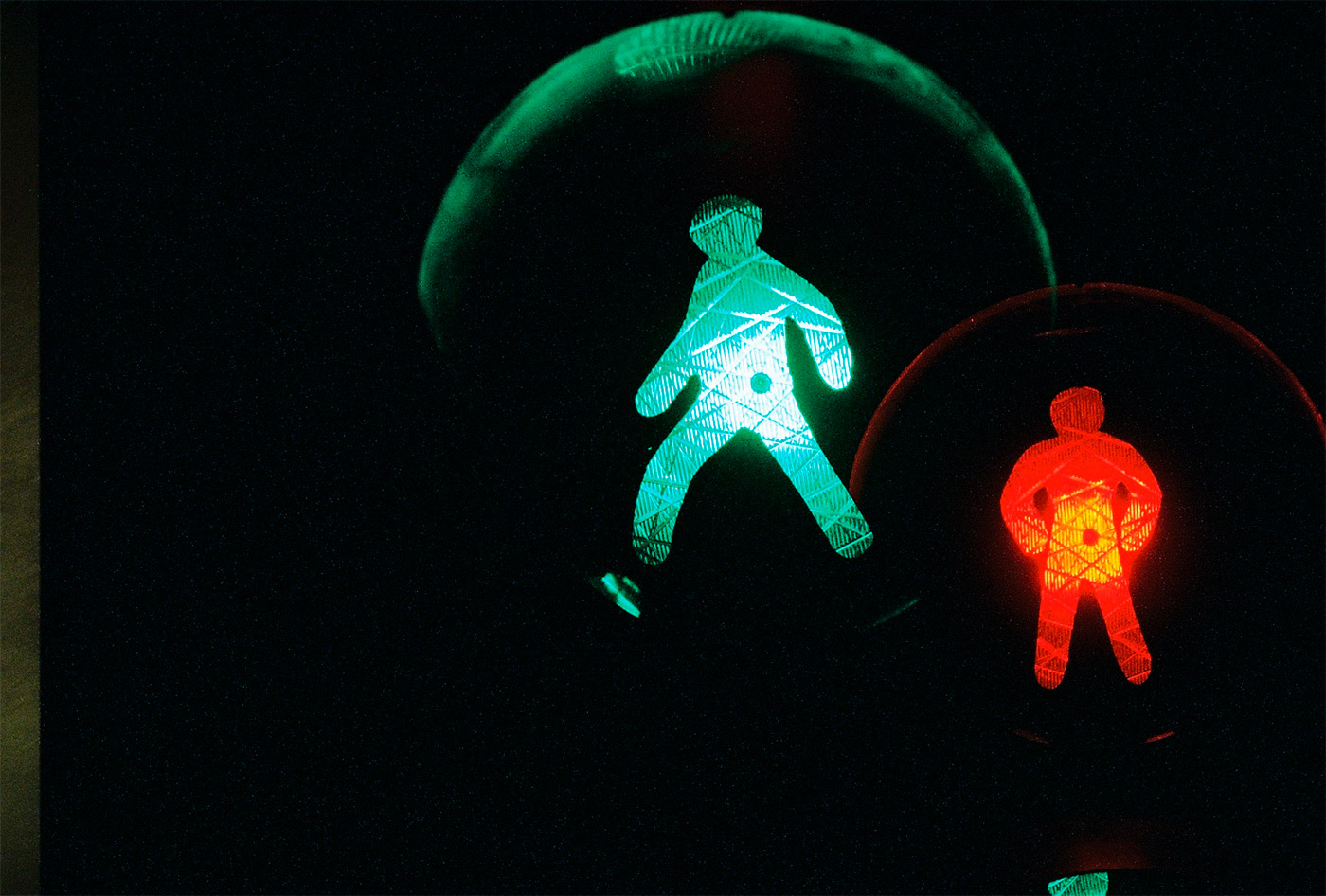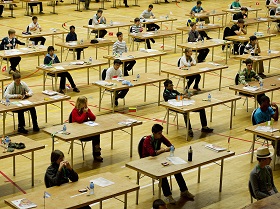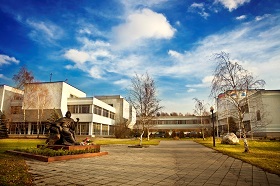Twenty years ago in the Italian city of Bologna, an event took place that radically changed the lives of millions of people in Europe, primarily of a significant part of the new generation of Europeans. On June 19, 1999, the ministers of education of 29 European states got together at Europe’s oldest university and adopted the European Higher Education Area declaration, more widely known as the Bologna Declaration. This marked the beginning of the so-called Bologna Process, an initiative aimed at improving the quality of higher education in Europe, standardizing credit systems and academic degrees, promoting academic mobility for students and faculty, and expanding European inter-university cooperation in research and education. The largest and most ambitious international education project in the history of humankind had begun.
Over the last 20 years, European education has not gained the upper hand over European geopolitics. However, geopolitics has not emerged entirely victorious either. The five years of crisis in Europe–Russia relations have, among other things, demonstrated the amazing stability of university ties between Russia and the West, primarily between Russia and the European Union. Joint degree programs have not collapsed disastrously, and academic mobility has not dropped dramatically over these five years. Credit must go here to all those who were in a rush to integrate Russia into the Bologna Process in the 2000s: education cooperation managed to gain a significant safety margin that allowed it to withstand the test of the Ukrainian crisis, despite the extremely unfavorable political background and the persistent attempts by both sides to undermine this cooperation. And if Europeans today have gone past the stereotypical balalaikas, vodka, bears, ubiquitous Kremlin agents and oligarchs doing crazy things because they are rich and bored in their perception of Russia, then the credit for this goes not so much to the official propaganda, but to our students, professors and researchers working with their European counterparts, and also, naturally, to Russian writers, musicians, artists and other eminent representatives of Russian culture. Of course, there have been painful losses over the past five years, yet nothing even remotely similar to the old “iron curtain” has descended on Europe thus far.
The Bologna Process gives us an idea of the possible format for restoring EU–Russia relations. Apparently, this format will not appear through the creation of new cumbersome pan-European bodies with unwieldy bureaucratic machines, large budgets, rigid procedures, and similar things. “Institutional fatigue” will most likely remain for a long time to come, both in the West and in the East of our continent.
If and when the time of Greater Europe comes again, it will be formed of individual, mobile and flexible regimes and agreements similar to the Bologna Process. The role of states in the East and the West will consist not in constructing and building these regimes, but in non-intervention and, ideally, in advancing the natural processes of convergence spearheaded by independent institutions, autonomous groups, and even individuals.
It is difficult to compare the Bologna Process in its present form to a majestic architectural structure of glass, steel and concrete. Rather, it resembles a living tree that blooms and bears fruit in accordance with its own complex and mysterious algorithms. The mechanisms of reviving “Greater Europe” will certainly prove even more complex and mysterious.
Twenty years ago in the Italian city of Bologna, an event took place that radically changed the lives of millions of people in Europe, primarily of a significant part of the new generation of Europeans. On June 19, 1999, the ministers of education of 29 European states got together at Europe’s oldest university and adopted the European Higher Education Area declaration, more widely known as the Bologna Declaration. This marked the beginning of the so-called Bologna Process, an initiative aimed at improving the quality of higher education in Europe, standardizing credit systems and academic degrees, promoting academic mobility for students and faculty, and expanding European inter-university cooperation in research and education. The largest and most ambitious international education project in the history of humankind had begun.
Gaudeamus igitur, juvenes dum sumus!
The news of the launch of the Bologna Process produced a surge of enthusiasm in Russia’s pro-Western circles. Primarily because the process itself was not formally tied to its participants’ membership in the European Union. Certainly, EU member states were the main masterminds and architects of the European educational integration project, but all the countries on the continent were invited to join its implementation, including those which, at the time, could not and did not intend to seek EU membership.
Second, the principal role in the practical implementation of the new initiative was accorded not so much to the ministries of education of the participating states as it was to the interested universities themselves, which made it possible to cut a lot of ministerial red tape by establishing direct contacts with foreign partners. European educational integration was conceived as a bottom-up, not a top-down process.
In fairness, however, it should be noted that, to borrow a phrase from Soviet singer-songwriter Vladimir Vysotsky, “in those times nearly shrouded in the mists of history,” the Ministry of Education of the Russian Federation headed by Vladimir Filippov (1999–2004) was perhaps the most enthusiastic proponent of Russia joining the Bologna Process and the Ministry did much to speed up the process. In the early 2000s, the Russian leadership took the country’s integration into the system of European higher education as an important political task, the solution of which would yet again confirm the absolute priority of the European vector in Russia’s development.
It would have been reasonable to expect the Russian secret services to have put up the staunchest opposition to these plans since the flow of foreign professors and students into Russia could easily include agents of western secret services. However, the main opposition came from the conservative wing of university rectors, which wanted to protect the traditions of the Soviet higher education system and vehemently rejected western innovations, particularly transitioning from educating “specialists” to the “bachelor–master” system that was unclear to many. There was an opinion that the true goal of Russia’s accession to the Bologna Process was the desire of governmental officials to divide the higher education system into two strata: one geared to the “masses” and another geared to the “elites,” thereby essentially denying the majority of Russians their constitutional right to affordable education.
Much was said and written to the effect that “harmonizing” the higher education development strategies among the Bologna Process participants would in fact mean their total unification, that standardizing credits would entail a massive drain of Russian students and graduate students to Europe, and that Russian education would inevitably lose its “fundamental nature,” becoming strictly “functional.” Particular attention was drawn to the fact that higher education in Russia is not merely a “service” provided to an “advanced consumer,” but a crucial instrument of inculcating the young generation with the civic responsibility and patriotism.
However, the opposition only managed to win a number of tactical victories concerning the preservation of the “Soviet specifics” of certain disciplines. Following four years of persistent preparations, Russia became a full-fledged member of the Bologna Process in 2003, two years ahead of Ukraine, seven years ahead of Kazakhstan, and 12 years ahead of Belarus. Speaking at a meeting with the government members on November 10, 2003, President Vladimir Putin drew a line under the discussions of the advantages and disadvantages of Russia joining the Bologna Process, as he described the accession as “a significant, serious step in Russia’s integration in the global space.” The Russian leader’s unequivocal support of the Bologna Process was a clear signal to both domestic opposition and western partners who may still have been harboring doubts about Moscow’s European priorities.
Ubi sunt, qui ante nos in mundo fuere?
Whether the grim forecasts of the critics of Russia’s transitioning to the “European track” were plucked from the air or based in reality is debatable. Education, including higher education, is by definition a conservative milieu where any radical changes are usually contraindicated. Undoubtedly, the “Bologna transit” failed to live up to the expectations of 20 years ago. It did not solve a number fundamental problems of the Russian education system and, moreover, was linked to tangible losses. Today, the word “bachelor” is still frequently synonymous with a “dropout”: bachelors are perceived as persons with an incomplete higher education who are not quite ready for the labor market.
Unfortunately, Russia’s attempts to gain the status of an associated state, first with the Seventh Framework Programme for Research and Technological Development (FP7, 2007–2013) and then with FP8, or Horizon 2020 (2014–2020), failed. The main fault for this appears to lie with the EU bureaucracy, which threw the doors wide open for academic cooperation with such post-Soviet states as Armenia, Georgia, Moldova, and Ukraine, yet did everything it could to impede Russia from gaining the status of an associated country, possibly out of fear of Russian research centres competing in European academic markets. Ultimately, it was a lose-lose situation for Russian and European science, and inter-university collaboration lost an important development tool.
We should also recognize that Russia was not always sufficiently consistent and persistent in complying with the commitments it undertook. For instance, the Road Map on the Common Space of Research and Education, Including Cultural Aspects approved by Russia and the European Union in May 2005 states the readiness of both parties to accept Bologna’s two-tier “bachelor–master” system and their determination to transition to the three-tier “bachelor–master–doctorate” system. In other words, Russia was to abandon its customary degrees of “candidate of science” and “doctor of science” in favor of the western Ph.D. degree. Instead, Russia took the path of holding talks with individual European states (for instance, with France) in order to ensure that the Russian candidate’s degree would be equivalent to the European Ph.D. Yet anyone who has in some way come in touch with Russian candidate and western Ph.D. dissertations cannot help seeing that they are entirely different both in their volume and in the requirements they have to meet.
Nonetheless, there are reasons to state that the overall balance of gains and losses stemming from Russia acceding to the Bologna Process is favorable to Russia. In the 2000s, I did much work with Russian universities, mostly in the provinces, from Kaliningrad to Vladivostok, from Petrozavodsk to Nalchik. The universities were different, ranging from large classical higher education institutions that later granted federal status to small specialized pedagogical and polytechnic universities, and others. In most cases, every year I could see the quality of teaching improve, the curricula revised, the library holdings expanded, the university life that had been waning in the previous decade revived.
Certainly, international cooperation cannot be considered the only – or even the principal – source of all those shifts, but its significance as a catalyst of positive changes, at least for the leading Russian universities, was apparent to me. Inclusion in European academic and educational projects drew greater attention to foreign languages, stimulated the democratization of university management, encouraged initiative, and put new people at the forefront. As a rule, the “European” money did not account for a large chunk of the total university budget, yet it was considered an important indicator of the university’s level and status in the hierarchy of Russian schools of higher education.
There were hopes that the reform of higher education, and Russia’s integration into the general European academic and educational space, would serve as a powerful impetus for modernizing Russia as a whole because it is universities that educate the new generation of business and political leaders. There were hopes, and even confidence, that former students who took part in joint programs with European universities would look differently at Europe, at the world, and at Russia’s place in the world.
Vita nostra brevis est, brevi finietur…
Today, 20 years later, we have to acknowledge that these hopes were largely romantic illusions. Expanding international interaction in education within the Bologna Process failed to prevent the build-up of negative trends in relations between Europe and Russia that ultimately culminated in the acute crisis of 2014. Inter-university cooperation failed to mitigate Russia’s political conflict with its neighbors – Georgia, Ukraine, and the Baltic states. In their relations with western partners, the universities of post-Soviet states acted more frequently as rivals competing against each other, and not as allies.
On a more general level, it is necessary to acknowledge that, for 20 years, the process of internationalizing Russian higher education demonstrated reasonably good dynamics, but it never became the driver of Russia’s integration into the global world. In that sense, Russia is significantly behind China, although today, China’s successes in international educational and academic cooperation do not look as indisputable as they did two or three years ago.
And it is not even the matter of the university community failing to make arrogant politicians listen to reason, as no one really expected that to happen. However, universities that traditionally (and not without reason) claim not only to teach and instruct but also to enlighten, proved to be incapable of exerting any significant influence on the public opinions on both sides of the new global political divide. Universities failed to cure long-standing public phobias, to put an end to national biases and stereotypes lurking in the dark depths of the public consciousness.
On the contrary, universities instead demonstrated their vulnerability to the viruses of the pan-European, even global outbreak of informational confrontation and militant particularism. More and more often, the university community calls for “national political science,” for “a sovereign theory of international relations,” for the adoption of domestic evaluations and criteria of assessing the effectiveness of universities, etc.
I frequently meet former students, graduate students and former young faculty members who were the first beneficiaries of Russia’s participation in the Bologna Process in the early 2000s. Their lives took different courses. Some of them have become fundamentally disappointed in Europe over the past 20 years, and I know quite a few people who were decidedly pro-West, yet returned home from European universities equally pro-Eurasia. Some, on the contrary, were so in love with Europe that they “voted with their feet” having found their niche on the European academic and educational market and transforming from a participant in the Russian academic and educational processes into a favorable or critical outside observer thereof. Some left the academic community entirely and found their calling in other areas, for instance, in business or in public service.
Yet the majority of former enthusiasts of the common academic and educational European space continue their not always invisible, yet very important and necessary work. The majority of them already hold high administrative positions in the administrations of their respective universities. They are department chairs, deans and even rectors. They have many students and personal projects. And they have reached a certain social and academic standing. Whatever turns their professional and administrative careers take, sometimes quite unexpectedly, the generation of the 2000s participated in international university cooperation, and it remained for many a unique and highly valuable life experience that defined their lives, careers, and worldviews for years to come.
These people hardly welcome the current trend towards a deepening abyss between Russia and Europe. They will not build barricades in the streets, and it would be absurd to demand that professors who are soon to retire exhibit the all-or-nothing mentality of youth. Their mission is different: as monks in medieval monasteries preserved the priceless drops of knowledge from the classical antiquity until better times, so the university community in the East and the West must preserve the eternal values of the academic and educational universalism in the dark years of the political particularism that is on the march on all fronts. They will be waiting for the inevitable arrival of a new Modernity, when these values are in demand again.
This mission requires if not heroes, then at least enthusiasts. And luckily, such enthusiasts can still be found in our universities.
Vivat Academia! Vivant professores!
Over the last 20 years, European education has not gained the upper hand over European geopolitics. However, geopolitics has not emerged entirely victorious either. The five years of crisis in Europe–Russia relations has, among other things, demonstrated the amazing stability of university ties between Russia and the West, primarily between Russia and the European Union. Joint degree programs have not collapsed disastrously, and academic mobility has not dropped dramatically over these five years. Credit must go here to all those who were in a rush to integrate Russia into the Process in the 2000s: education cooperation managed to gain a significant safety margin that allowed it to withstand the test of the Ukrainian crisis.
It did so despite every adversity – despite the extremely unfavorable political background and despite the persistent attempts by both sides to undermine this cooperation. And if Europeans today have gone past the stereotypical balalaikas, vodka, bears, ubiquitous Kremlin agents and oligarchs doing crazy things because they are rich and bored in their perception of Russia, then the credit for this goes not so much to the official propaganda, but to our students, professors and researchers working with their European counterparts, and also, naturally, to Russian writers, musicians, artists and other eminent representatives of Russian culture. Of course, there have been painful losses over the past five years, yet nothing even remotely similar to the old “iron curtain” has descended on Europe thus far.
The Bologna Process gives us an idea of the possible format for restoring EU–Russia relations. Apparently, this format will not appear through the creation of new cumbersome pan-European bodies with unwieldy bureaucratic machines, large budgets, rigid procedures and similar things. “Institutional fatigue” will most likely remain for a long time to come, both in the West and in the East of our continent.
If and when the time of Greater Europe comes again, it will be formed of individual, mobile and flexible regimes and agreements similar to the Bologna Process. The role of states in the East and the West will consist not in constructing and building these regimes, but in non-intervention and, ideally, in advancing the natural processes of convergence spearheaded by independent institutions, autonomous groups and even individuals.
It is difficult to compare the Bologna Process in its present form to a majestic architectural structure of glass, steel and concrete. Rather, it resembles a living tree that blooms and bears fruit in accordance with its own complex and mysterious algorithms. The mechanisms of reviving “Greater Europe” will certainly prove even more complex and mysterious.
First published in French in Le Courrier de Russie.










